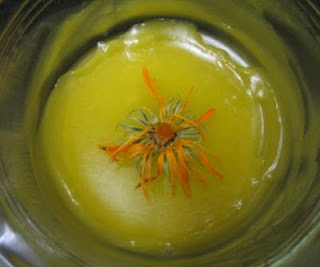While I wouldn't change a thing about living in Michigan - it is beautiful - the weather sure is fickle. While last week was 9 degrees and snowy, today is 55 and rainy. Drastic fluctuations in temperature are certainly the norm here - and it is also a perfect recipe for dry skin.
When the temps drop, indoor forced-air heat can quickly dehydrate your skin. Go outside and chilly outdoor temps cause skin to loose moisture to the air. Icy winds chap and irritate. Then it warms up again and your skin is left saying: WTF?!? And the cycle continues...
I have heard from several of you over the last week that your skin is disgruntled and dry. So here are a few tips I have compiled to help you on the road to happy, hydrated skin:
General Tips to Prevent Dry Skin
 |
| Hydrating your body from the inside is the first step to preventing dry skin. |
- Drink plenty of water and/or coconut water to help keep your skin hydrated. Eat plenty of fruits and veggies to also increase hydration in your body.
- Try to avoid caffeinated drinks, as they dry out your skin. If you must have your coffee in the morning (and, believe me, I understand!), drink an extra glass of water for each cup.
- Try to avoid alcohol, as it also dehydrates your skin.
- When headed outside, cover your skin as much as possible with clothing. Cover any areas of exposed skin with a thick lotion to prevent moisture loss.
- Apply lip balm frequently throughout the day, especially before you go outside.
- Keep baths and showers short and warm (not hot). Hot water dries skin out by stripping your skin of its natural oils.
- Add fatty fish, like salmon, to your diet or take a good quality fish oil. The good omega-3 fatty acids help to keep skin moist.
- Avoid using harsh cleansers, soaps or exfoliants. These will only further strip your skin and lead to dryness.
General Tips to Treat Dry Skin
 |
| Exfoliating dry skin first is key to allowing your products to work more effectively. |
- Gently exfoliate dry skin with a brush, loofah or exfoliating gloves as part of your body cleansing routine in the shower before using any topical treatments (oils, lotions, etc.). Dry, flaky skin needs to be removed from the surface of skin to allow topical treatments to work more effectively. Be SUPER gentle if your skin is overly sensitive and use these items only a few times a week. Avoid them altogether if you have any rashes, open wounds or general irritation.
- Avoid cleansing your entire body every day, especially with a foaming soap or body wash, as they can strip your skin. Skip a day of sudsing, or wash only those most important bits daily. ;)
- Better yet, use a body wash of 1 part honey to 1 part oil (jojoba or coconut is lovely) a few times a week in place of your regular soap.
- Apply lotions, body butters, oils, etc. immediately after showering while your skin is still damp. You want to capture the water and seal it into your skin.
- Layer your products to protect skin from loss of precious moisture to the elements - start with an oil, followed by a rich lotion or body butter.
- Avoid using products with artificial ingredients, as they can dry and irritate skin, too.
Helpful Ingredients For Dry Skin
 |
| Calendula oil and beeswax salve is a great dry skin healer. |
- Humectants like honey and vegetable glycerin help to pull moisture from the air into your skin.
- Oils like olive, coconut, hazelnut, grapeseed, jojoba, sesame and sunflower work to replace lost moisture, while being easily absorbed into skin.
- Oils like rosehip seed and carrot seed help to increase cell regeneration, repairing damaged tissues.
- Products containing beeswax add a breathable, protective layer to skin.
- Essential Oils like chamomile, lavender, ylang ylang and sandalwood help to soothe and heal dry itchy skin.
- Aloe Vera soothes, heals and stops itching from irritated, dry skin. Just be sure you use the pure aloe gel, not the stuff full of colors and added fragrances.
- Hyaluronic Acid is an ingredient found naturally in skin, it attracts and retains moisture in your skin, while plumping and softening, which is great for dry skin and wrinkles (bonus!).
- Fruits and Veggies like avocado and banana help to add moisture to skin.
- Fruits and Veggies like papaya, pineapples and grapes help to naturally exfoliate dry skin due to their natural fruit acids and enzymes.
- Herbs like calendula, chamomile and lavender are soothing, healing and anti-inflammatory for dry-irritated skin. A nice oil infused with these is great for dry skin.
- Herbs like rose, licorice, marshmallow and chickweed are cooling and demulcent (they form a soothing, protective layer on dry skin).
- Sea Kelp is amazing for skin when used externally. It's gelatinous texture soothes, hydrates and protects dry skin.
I hope this offers some helpful ways to hydrate, repair and protect your skin during these upcoming months.
xoxo,
Camille

Valuable tips. I completely agree with you, it is necessary to avoid caffeinated drinks as they dehydrate skin and drink 7 to 8 cups of water instead; to keep your skin hydrated and healthy.
ReplyDelete